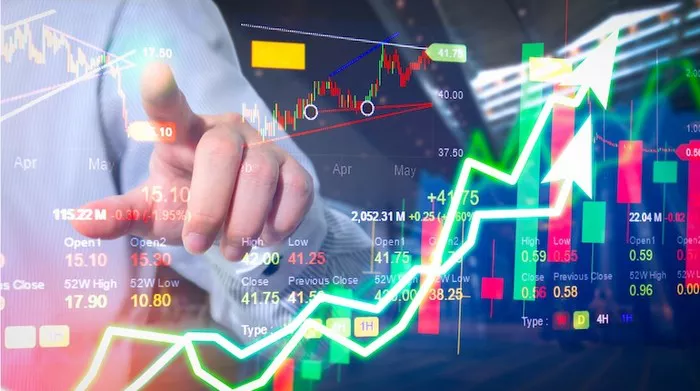Commodity futures markets play a crucial role in the global economy, providing a platform for hedging against price fluctuations, facilitating price discovery, and enabling risk management for market participants. While commodities such as agricultural products, energy resources, metals, and financial instruments are traded on futures exchanges, the users of commodity futures markets vary widely, ranging from producers and consumers to speculators and investors. In this article, we delve into the diverse array of users who participate in commodity futures markets, exploring their motivations, strategies, and contributions to market dynamics.
Producers
One of the primary users of commodity futures markets is producers, including farmers, miners, and energy companies. Producers rely on futures contracts to hedge against price volatility and protect their revenues from adverse price movements. For example, farmers may use futures contracts to lock in prices for their crops before planting season, ensuring a stable income regardless of fluctuations in market prices. Similarly, mining companies can hedge against fluctuations in metal prices by entering into futures contracts to sell their production at predetermined prices.
Consumers
Consumers of commodities, such as food manufacturers, energy utilities, and industrial companies, also utilize futures markets to manage their exposure to price risk. By entering into futures contracts to buy commodities at fixed prices, consumers can protect themselves against price increases and ensure a stable supply of raw materials for their operations. For example, a food manufacturer may use futures contracts to lock in prices for grains or livestock, while an energy utility may hedge against fluctuations in natural gas or electricity prices.
Speculators
Speculators play a vital role in commodity futures markets by providing liquidity and facilitating price discovery. Unlike hedgers who use futures contracts to mitigate price risk, speculators aim to profit from price movements by buying low and selling high (or vice versa). Speculators include individual traders, hedge funds, proprietary trading firms, and institutional investors who seek to capitalize on short-term price fluctuations in commodity markets. While speculators assume greater risks than hedgers, they contribute to market efficiency by providing liquidity and narrowing bid-ask spreads.
Investors
Investors seeking portfolio diversification and inflation protection may also utilize commodity futures markets as part of their investment strategies. Commodities, as an asset class, have low correlation with traditional stocks and bonds, making them attractive for diversifying investment portfolios and reducing overall portfolio risk. Moreover, commodities have historically served as a hedge against inflation, as rising commodity prices tend to coincide with periods of high inflation. Institutional investors, pension funds, and asset managers may allocate a portion of their portfolios to commodity futures to achieve diversification and inflation protection benefits.
Arbitrageurs
Arbitrageurs are traders who exploit price differentials between related markets to earn risk-free profits. In commodity futures markets, arbitrage opportunities may arise due to discrepancies between futures prices and spot prices, or between futures contracts with different expiration dates (known as calendar spreads). Arbitrageurs buy undervalued contracts and sell overvalued contracts simultaneously to capture the price differential, thereby helping to align prices across different markets and contracts.
Market Makers
Market makers are entities that provide continuous liquidity to commodity futures markets by quoting bid and ask prices for futures contracts. Market makers play a critical role in ensuring orderly trading and narrowing bid-ask spreads, thereby enhancing market efficiency and liquidity. Market makers may include brokerage firms, proprietary trading firms, and high-frequency trading (HFT) firms that use automated trading algorithms to execute trades rapidly and profitably.
Government Agencies
Government agencies may also participate in commodity futures markets for various reasons, including price stabilization, strategic reserves management, and policy implementation. For example, agricultural agencies may use futures contracts to support farm incomes, manage food price inflation, or intervene in markets to stabilize prices during periods of crisis or supply disruptions. Additionally, central banks and sovereign wealth funds may hold commodity futures as part of their reserve portfolios or investment strategies.
Risk Management Firms
Risk management firms, such as insurance companies and commodity trading advisors (CTAs), use commodity futures markets to hedge against risks associated with their core business activities. Insurance companies may hedge against weather-related risks, such as hurricanes or droughts, by trading futures contracts on agricultural commodities. CTAs may use futures markets to implement systematic trading strategies designed to generate alpha and manage portfolio risk for their clients.
Conclusion
In conclusion, commodity futures markets attract a diverse range of users, including producers, consumers, speculators, investors, arbitrageurs, market makers, government agencies, and risk management firms. Each user category has distinct motivations, strategies, and contributions to market dynamics, collectively shaping the functioning and efficiency of commodity futures markets. While hedgers utilize futures contracts to manage price risk and ensure stability in their operations, speculators and investors seek to profit from price movements and achieve portfolio objectives. Market participants benefit from the liquidity, price discovery, and risk management tools offered by commodity futures markets, contributing to the overall resilience and effectiveness of these essential financial markets.


